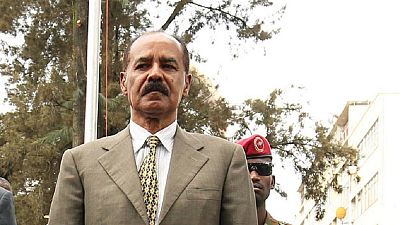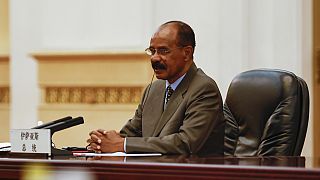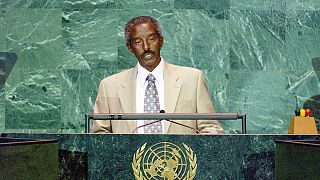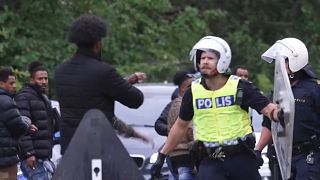Eritrea
Eritrea is forcing thousands of students and teachers into indefinite national service, driving many into exile and frustrating hopes that a peace deal with Ethiopia might end conscription, Human Rights Watch said on Friday.
Teenage students are systematically subject to hard labour at an isolated military camp near the Sudanese border, with many also enduring physical abuse, the rights group said in a report.
“Eritrea’s secondary schools are at the heart of its repressive system of control,” Laetitia Bader, the report’s author, said. “Now that peace with Ethiopia is restored, reforms on human rights, starting with the rights and freedom of the country’s youth, need to follow.”
A government spokesman did not respond to two requests for comment from Reuters.
The Horn of Africa country has run a system of universal conscription for more than two decades, with the government justifying mandatory national service by invoking a “no peace, no war” stalemate with neighbouring Ethiopia after a border conflict from 1998 to 2000.
The two countries signed a peace deal in July 2018.
But since then, despite expectations among new recruits that conscription would be significantly scaled back, Eritrea has “not made any meaningful changes to national service or to its system of repression,” the HRW said.
Conscription drives thousands, including many unaccompanied children, to leave the country each year. Its population is around five million, and the United Nations estimated in late 2018 that a further 500,000 Eritreans were refugees.
The HRW report said students, some under 18, are sent to the Sawa military camp for their final year of secondary school. Officers sexually abuse some female students, food is limited, and the year ends with four months of military training, it said.
Graduates are either posted permanently to the military or given vocational training and assigned civilian professions, including teaching, for their whole working lives life on low wages.
One Eritrean refugee said he had attended the military camp at 17 and was jailed after trying to leave the country and his assigned job. “There is no escape … unless you flee,” he told Reuters on condition of anonymity.
REUTERS












02:05
Human Rights Watch urges action over incendiary weapons use in South Sudan
Go to video
DRC: UN report highlights human rights violations linked to M23 group's offensive
Go to video
German authorities target Eritrean opposition group in nationwide raids
Go to video
Ethiopia: Abiy Ahmed dismisses war possibility with Eritrea amid rising fears
01:49
Dutch King highlights Human Rights during state visit to Kenya
02:22
'Khartoum' documents the lives of ordinary Sudanese navigating war and exile